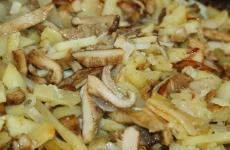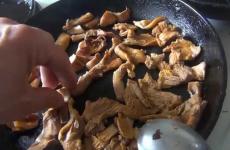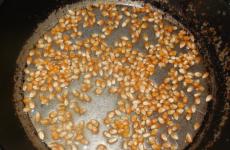Present perfect passive упражнения голицынский. Упражнения на пассивный залог во времени "Present Perfect". "Агент действия" и перевод из активного залога в пассивный
Упражнения на пассивный залог во времени Present Perfect.
Упражнение 1.
Read the texts and find the sentences with Present Perfect Active and Present Perfect Passive tense forms. Translate them into your language.
Nina has lived in Sydney for two years. She has done a lot of things in Sydney. She has seen several plays, she has gone to the picture galleries and museums. She has visited the circus as well, and she has taken a tour to the Islands on Port Jackson. However, there are a lot of planned things she hasn’t done yet. She hasn’t gone to the Australian Reptile Park yet. Nina hasn’t been to some other parks yet.
The boss is angry with his secretary today because important letters haven’t been typed yet. Tea has been given to him cold. Wrong telephone numbers have been written down. The mail hasn’t been sent in time. A lot of time has been spent over the telephone.
Упражнение 2. Change the sentences with Present Perfect Active into Present Perfect Passive.
Example: I have already finished my work. My work ... - My work has already been finished.
I have already taken the books back to the library. The books ...
She has just posted those letters. Those letters ...
The teacher has already checked my test. My test ...
He has lost the key. The key ...
We have opened all the windows. All the windows ...
I have bought bread on the way home. Bread ...
I have done this exercise. This exercise ...
Упражнение 3. Imagine that your classroom and the school yard have been thoroughly cleaned. Say what has been done by whom.
Example The windows ... (to wash) - The windows have been washed by the girls.
The desks ... (to wash)
The flowers ... (to water)
The floor ... (to mop)
The furniture ... (to dust)
The grass ... (to cut)
The trees ... (to cut)
Упражнение 4. Answer the questions about your English lesson using Present Perfect Passive.
Have you been asked to read a text?
Has the text been translated?
Have the new words been written down?
Have the exercises been done by all the pupils?
Has your friend been asked to recite something?
Has large homework been given?
Who has been given good (bad) marks?
Have you been praised by the teacher?
Упражнение 5. Use Present Perfect Active or Passive of the verbs in brackets to complete the sentences.
Peter ... (to break) the window.
The exercise ... (to write) already.
The text ... (to translate) by Victor.
The teacher just ... (to explain) the new rule.
We (to learn) the Passive Voice already.
A new school ... (to build) in this street.
Упражнение 6. Translate into English using Present Perfect Active or Passive.
Я только что купил газету. 2. Телевизор только что выключили. 3. Он уже ответил на вопрос. 4. Слова только что написали на доске. 5. Мы уже говорили об этом. 6. Все ответы уже даны. 7. Об этом только что сказали по радио. 8.Я уже смотрел этот фильм 9.Мне ничего об этом не говорили. 10.Все предложения уже написаны.
Ответы:
Упражнение 1. All the sentences in text A are in Present Perfect Active. All the sentences in text B are in Present Perfect Passive.
Упражнение 2. The books have been already taken back to the library by me. Those letters have just been posted by her. My test has already been checked by the teacher. The key has been lost by him. All the windows have been opened by us. Bread has been bought by me on the way home. This exercise has been done by me.
Упражнение 3. The desks have been washed by the pupils. The flowers have been watered by Molly. The floor has been mopped by the cleaners. The furniture has been to dusted by the boys. The grass has been to cut by the caretaker. The trees have been cut by the workmen.
Упражнение 4. Your own answers. Упражнение 5. 1 has broken, 2 has been already written, 3 has been translated, 4 has just explained, 5 have learnt, 6 has been built
Упражнение 6. I have just bought the newspaper. The TV-set has just been switched off. Не has already answered this question. The words have just been written on the blackboard. We’ve already spoken about it. All the answers have already been given. This has been just said over the radio. I’ve already watched this film. I haven’t been told anything about it. All the sentences have already been written.
В данной статье приведен пример преобразования формы активного залога Future Perfect в форму пассивного залога. Для выполнения данной задачи нам необходимо воспользоваться структурной схемой утвердительного предложения времени Future Perfect :
Subject
+ will have
+ Verb III form
+ Object
Подлежащее
+ will have
+ Глагол III формы
+ Object
Преобразование в пассивную форму начнем с замены смыслового глагола следующей синтаксической конструкцией:
to be + V III form
Данная конструкция говорит нам, что мы должны преобразовать вспомогательный глагол to be в ту форму, в которой стоит смысловой глагол в предложении исходного активного залога. А сам смысловой глагол должен быть преобразован в глагол III формы. Следуя данному правилу, мы преобразуем глагол to be в третью форму – been, а также и смысловой глагол в эту же форму (так как он и так уже находится в третьей форме, то смысловой глагол не меняется). Так же, подлежащее и дополнение меняются местами, т.к. в пасивном залоге меняется направление воздействия с субъекта на объект. В итоге получим следующую структуру, соответствующую пассивному залогу времени Future Perfect в утвердительной форме:
Subject
+ will have been
+ Verb III form
+
Подлежащее
+ will have been
+ Глагол III формы
+
Вопросительная форма:
Will
+ Subject
+ have been
+ Verb III
+ ?
Will
+ Подлежащее
+ have been
+ Глагол III
+ ?
Отрицательная форма:
Subject
+ will
+ not
+ have been
+ Verb III
+
Подлежащее
+ will
+ not
+ have been
+ Глагол III
+
Примеры предложений:
| Active voice | Passive voice |
|---|---|
| Утвердительная форма | |
| She will have finished the performance by 8 o’clock. Она завершит выступление к 8 часам. |
The performance will have been finished by 8 o’clock. Выступление будет завершено к 8 часам. |
| They will have repaired the car by the next week. Они отремонтируют автомобиль к следующей неделе. |
The car will have been repaired by the next week. Автомобиль будет отремонтирован к следующей неделе. |
| I will have made the toy by your birthday. Я сделаю игрушку к твоему дню рождения. |
The toy will have been made by your birthday. Игрушка будет сделана к твоему дню рождения. |
| He will have read the letters by your return. Он прочтет письма к твоему возвращению. |
The letters will have been read by your return. Письма будут прочтены к твоему возвращению. |
| Вопросительная форма | |
| Will she have finished the performance by 8 o’clock? Она завершит выступление к 8 часам? |
Will the performance have been finished by 8 o’clock? Выступление будет завершено к 8 часам? |
| Will they have repaired the car by the next week? Они отремонтируют автомобиль к следующей неделе? |
Will the car have been repaired by the next week? Автомобиль будет отремонтирован к следующей неделе? |
| Will I have made the toy by your birthday? Я сделаю игрушку к твоему дню рождения? |
Will the toy have been made by your birthday? Игрушка будет сделана к твоему дню рождения? |
| Will he have read the letters by your return? Он прочтет письма к твоему возвращению? |
Will the letters have been read by your return? Письма будут прочтены к твоему возвращению? |
| Отрицательная форма | |
| She will not have finished the performance by 8 o’clock. Она не завершит выступление к 8 часам. |
The performance will not have been finished by 8 o’clock. Выступление не будет завершено к 8 часам. |
| They will not have repaired the car by the next week. Они не отремонтируют автомобиль к следующей неделе. |
The car will not have been repaired by the next week. Автомобиль не будет отремонтирован к следующей неделе. |
| I will have not made the toy by your birthday. Я не сделаю игрушку к твоему дню рождения. |
The toy will not have been made by your birthday. Игрушка не будет сделана к твоему дню рождения. |
| He will not have read the letters by your return. Он не прочтет письма к твоему возвращению. |
The letters will not have been read by your return. Письма не будут прочтены к твоему возвращению. |
- The postbox (to empty) every day.
- The letters (to deliver).
Answers: 1. is emptied 2. are postmarked. 3. are sorted. 4. is loaded. 5. are unloaded. 6. are taken. 7. are sorted. 8. are delivered.

Exercise 2. Раскройте скобки, употребляя глаголы в Past Simple Passive. (YESTERDAY)
- The postbox (to empty) yesterday.
- The stamps (to postmark) at the post office.
- The letters (to sort) into the different towns.
- The mail (to load) into the train.
- The mailbags (to unload) after their journey.
- The bags (to take) to the post office.
- The letters (to sort) into the different streets.
- The letters (to deliver).
Answers: 1. was emptied. 2. were postmarked. 3. were sorted. 4. was loaded. 5. were unloaded. 6. were taken. 7. were sorted. 8. were delivered.
Exercise 3. Раскройте скобки, употребляя глаголы в Future Simple Passive. (TOMORROW)
- The postbox (to empty) tomorrow.
- The stamps (to postmark) at the post office.
- The letters (to sort) into the different towns.
- The mail (to load) into the train.
- The mailbags (to unload) after their journey.
- The bags (to take) to the postoffice.
- The letters (to sort) into the different streets.
- The letters (to deliever).
Answers: 1. will be emptied. 2. will be postmarked. 3. will be sorted. 4. will be loaded. 5. will be unloaded. 6. will be taken. 7. will be sorted. 8. will be delivered.
Exercise 4. Раскройте скобки, употребляя глаголы в Present, Past или Future Simple Passive.
- My question (to answer) yesterday.
- Hockey (to play) in winter.
- Mushrooms (to gather) in autumn.
- Many houses (to burn) during the Great Fire of London.
- His new book (to finish) next year.
- Flowers (to sell) in shops and in the streets.
- St. Petersburg (to found) in 1703.
- Bread (to eat) every day.
- The letter (to receive) yesterday.
- Nick (to send) to Moscow next week.
- I (to ask) at the lesson yesterday.
- I (to give) a very interest ing book at the library last Friday.
- Many houses (to build) in our town every year.
- This work (to do) tomorrow.
- This text (to translate) at the last lesson.
- These trees (to plant) last autumn.
- Many interesting games always (to play) at our PT lessons.
- This bone (to give) to my dog tomorrow.
- We (to invite) to a concert last Saturday.
- Lost time never (to find) again.
- Rome (not to build) in a day.
Answers: 1. was answered. 2. is played. 3. are gathered. 4. were burnt. 5. will be finished. 6. are sold. 7. was founded. 8. is eaten. 9. was received. 10. will be sent. 11. was asked. 12. was given. 13. are built. 14. will be done. 15. was translated. 16. were planted. 17. are always played. 18. will be given. 19. were invited. 20. is never found. 21. was not built.

Exercise 5. Раскройте скобки, выбирая требующуюся форму глагола.
- At the station they will (meet, be met) by a man from the travel bureau.
- She will (meet, be met) them in the hall upstairs.
- The porter will (bring, be brought) your luggage to your room.
- Your luggage will (bring, be brought) up in the lift.
- You may (leave, be left) your hat and coat in the cloakroom downstairs.
- They can (leave, be left) the key with the clerk downstairs.
- From the station they will (take, be taken) straight to the hotel.
- Tomorrow he will (take, be taken) them to the Russian Museum.
Answers: 1. will be met. 2. will meet. 3. will bring. 4. will be brought. 5. may leave. 6. can leave. 7. will be taken. 8. will take.
Exercise 6. Передайте следующие предложения в Passive Voice, обращая внимание на место предлога.
E.g. We often speak of her. - She is often spoken of.
- The senior students laughed at the freshman.
- The group spoke to the headmistress yesterday.
- Young mothers looked after their babies with great care.
- Nobody lived in that old house.
- They sent for Jim and told him to prepare a report on that subject.
- We thought about our friend all the time.
- The doctor will operate on him in a week.
- The teacher sent for the pupil’s parents.
- They looked for the newspaper everywhere.
- Nobody slept in the bed.
- The neighbour asked for the telegram.
- Everybody listened to the lecturer with great attention.
Answers: 1. The freshman was laughed at. 2. The headmistress was spoken to yesterday. 3. The babies were looked after with great care. 4. That old house was not lived in. 5. Jim was sent for and told to prepare a report on that subject. 6. Our friend was thought about all the time. 7. He will be operated on in a week. 8. The pupil’s parents were sent for. 9. The newspaper was looked for everywhere. 10. The bed was not slept in. 11. The telegram was asked for. 12. The lecturer was listened to with great attention.
Exercise 7. Раскройте скобки, употребляя глаголы в Active Voice или Passive Voice.
- Nobody (to see) him yesterday.
- The telegram (to receive) tomorrow.
- He (to give) me this book next week.
- The answer to this question can (to find) in the encyclopedia.
- We (to show) the historical monuments of the capital to the delegation tomorrow.
- You can (to find) interesting information about the life in the USA in this book.
- Budapest (to divide) by the Danube into two parts: Buda and Pest.
- Yuri Dolgoruki (to found) Moscow in 1147.
- Moscow University (to found) by Lomonosov.
- We (to call) Zhukovski the father of Russian aviation.
Answers: 1. saw. 2. will be received. 3. will give. 4. be found. 5. shall show. 6. find. 7. is divided. 8. founded. 9. was founded. 10. call.

Exercise 8. Передайте следующие предложения в Passive Voice.
- Не stole a lot of money from the shop.
- By six o’clock they had finished the work.
- At twelve o’clock the workers were loading the trucks.
- By three o’clock the workers had loaded the trucks.
- We send our daughter to rest in the south every year.
- They will show this film on TV.
- They are building a new concert hall in our street.
- I bought potatoes yesterday.
- We shall bring the books tomorrow.
- They are repairing the clock now.
- They sell milk in this shop.
- I have translated the whole text.
- They broke the window last week.
- When I came home, they had eaten the sweets.
- We shall do the work in the evening.
- He wrote this book in the 19th century.
- They were playing tennis from four till five.
- They have made a number of important experiments in this laboratory.
- Livingstone explored Central Africa in the 19th century.
- By the middle of autumn we had planted all the trees.
- They will stage this play at the beginning of next season.
- They have forgotten the story.
- Has anybody explained the rules of the game to you?
- They haven’t brought back my skates.
Answers: 1. A lot of money was stolen from the shop. 2. By six o’clock the work had been finished. 3. At twelve o’clock the trucks were being loaded. 4. By three o’clock the trucks had been loaded. 5. Our daughter is sent to rest in the south every year. 6. This film will be shown on TV. 7. A new concert hall is being built in our street. 8. Potatoes were bought yesterday. 9. The books will be brought tomorrow. 10. The clock is being repaired now. 11. Milk is sold in this shop. 12. The whole text has been translated.. 13. The window was broken last week. 14. When I came home, the sweets had been eaten. 15. The work will be done in the evening. 16. This book was written in the 19th century. 17. Tennis was being played.from four till five. 18. The number of important experiments K-we been made in this laboratory. 19. Central Africa was explored by Livingstone in the 19th century. 20. By the middle of autumn all the trees had been planted. 21. This play will be staged at the beginning of next season. 22. The story has been forgotten. 23. Have the rules of the game been explained to you? 24. My skates haven’t been brought back.
Exercise 9. Передайте следующие предложения в Active Voice. Введите любые подходящие подлежащие.
- The room was cleaned and aired.
- Have all these books been read?
- Whom were these letters written by?
- The letter has just been typed.
- She showed me the picture which had been painted by her husband.
- I shall not be allowed to go there.
- He has been told everything, so he knows what to do now.
- All the questions must be answered.
- The door has been left open.
- Betty was met atthe station.
- The girl was not allowed to go to the concert.
- She said that the new timetable had not yet been hung up on the notice board.
- The roast chicken was eaten with appetite.
- It was so dark, that the houses could not be seen.
- The light has not yet been turned off.
- The boy was punished for misbehaving.
- By three o’clock everything had been prepared.
- The dictation was written without mistakes.
- Whom was the poem written by?
- Her dress was washed and ironed.
- I was not blamed for the mistakes.
- The papers had been looked through and corrected by the next lesson.
- This house was built last year.
- The letter has just been sent.
- This article will be translated at the lesson on Tuesday.
- When will this book be returned to the library?
Answers:
I. She cleaned and aired the room. 2. Have you read all these books? 3. Who wrote these letters? 4.The secretary has just typed the letter. 5. She showed me the picture which her husband had painted. 6. My parents will not allow me to go there. 7. We have told him everything so he knows what to do. 8. You must answer all the questions. 9. They have left the door open. 10. We met Betty at the station.
II. The girl’s mother did not allow her to go to the concert. 12. She said that they had not yet hung up the new timetable on the notice board. 13. We ate the chicken with appetite. 14. It was so dark that we could not see the houses. 15. They have not yet turned off the light. 16. She punished the boy for misbehaving. 17. By three o’clock we had prepared everything. 18. We wrote the dictation without mistakes. 19. Who wrote the poem? 20. She washed and ironed her dress. 21. They did not blame me for the mistakes. 22. The teacher had looked through and corrected the papers by the next lesson. 23.They built this house last year. 24. We have just sent the letter. 25. We shall translate this article at the lesson on Tuesday. 26. When will you return this book to the library?

Exercise 10. Переведите на английский язык, употребляя глаголы в Passive Voice.
- Нам показали очень странную картину.
- Тебя ищут. Иди домой.
- Вас всех пригласят в зал и расскажут обо всех изменениях в школьной программе.
- Почему над ним всегда смеются?
- Нам всем дали билеты на выставку.
- Лекции этого знаменитого профессора всегда слушают с большим вниманием.
- Меня ждут?
- Им задали три трудных вопроса.
- За директором уже послали. Подождите немного.
- Всех пригласили в большой зал.
- Эти письма просмотрены. Их можно отправлять.
- На станции их встретил гид и отвез в гостиницу.
- Эти журналы должны быть возвращены в библиотеку на следующей неделе.
- На наших занятиях много внимания уделяется произношению.
- Иванову велели объяснить, почему он пропускает занятия.
- Меня пригласят на ваш вечер?
- Детей оставили дома одних.
Answers: 1. We were shown a very strange picture. 2. You are being looked for. Go home. 3. All of you will be gathered in the hall and told about all the changes in the school curriculum. 4. Why is he always laughed at? 5. All of us were given tickets to the exhibition. 6. The lectures of this famous professor are always listened to with great attention. 7. Am I being waited for? 8. They were asked three difficult questions. 9. The headmaster has already been sent for. Please wait a little. 10. Everybody was invited to a big hall. 11. These letters have been looked through. They can be sent. 12. At the station they were met by the guide and taken to the hotel. 13. These magazines must be returned to the library next week. 14. At our lessons much attention is paid to pronunciation. 15. Ivanov was told to explain why he missed classes. 16. Shall I be invited to your party? 17. The children were left alone at home.
WELL DONE!

Литература:
- Павличенко О.М. Английский язык. Грамматический практикум. II уровень. - 2-е изд., испр. и доп. - X.: Ранок, 2012. - 304 с.
- Голицынский Ю.Б. Грамматика: Сборник упражнений. - 5-е изд., - СПб: КАРО, 2005. - 544 с. - (Английский язык для школьников).
Упражнения на пассивный залог во времени Present Perfect. Exercises with answers. Полезные разноплановые упражнения на страдательный залог помогут Вам разобраться в данной теме.
Упражнение 1. Read the texts and find the sentences with Present Perfect Active and Present Perfect Passive tense forms. Translate them into your language.
Nina has lived in Sydney for two years. She has done a lot of things in Sydney. She has seen several plays, she has gone to the picture galleries and museums. She has visited the circus as well, and she has taken a tour to the Islands on Port Jackson. However, there are a lot of planned things she hasn’t done yet. She hasn’t gone to the Australian Reptile Park yet. Nina hasn’t been to some other parks yet.
The boss is angry with his secretary today because important letters haven’t been typed yet. Tea has been given to him cold. Wrong telephone numbers have been written down. The mail hasn’t been sent in time. A lot of time has been spent over the telephone.
Упражнение 2. Change the sentences with Present Perfect Active into Present Perfect Passive.
I have already finished my work. My work ...
My work has already been finished.
- I have already taken the books back to the library. The books ...
- She has just posted those letters. Those letters ...
- The teacher has already checked my test. My test ... —
- He has lost the key. The key ...
- We have opened all the windows. All the windows ... "
- I have bought bread on the way home. Bread ...
- I have done this exercise. This exercise ...
Упражнение 3. Imagine that your classroom and the school yard have been thoroughly cleaned. Say what has been done by whom.
Example The windows ... (to wash)
The windows have been washed by the girls.
- The desks ... (to wash)
- The flowers ... (to water)
- The floor ... (to mop)
- The furniture ... (to dust)
- The grass ... (to cut)
- The trees ... (to cut)
Упражнение 4. Answer the questions about your English lesson using Present Perfect Passive.
- Have you been asked to read a text?
- Has the text been translated?
- Have the new words been written down?
- Have the exercises been done by all the pupils?
- Has your friend been asked to recite something?
- Has large homework been given?
- Who has been given good (bad) marks?
- Have you been praised by the teacher?
Упражнение 5. Use Present Perfect Active or Passive of the verbs in brackets to complete the sentences.
- Peter ... (to break) the window.
- The exercise ... (to write) already.
- The text ... (to translate) by Victor.
- The teacher just ... (to explain) the new rule.
- We (to learn) the Passive Voice already.
- A new school ... (to build) in this street.
Упражнение 6. Translate into English using Present Perfect Active or Passive.
- Я только что купил газету
- Телевизор только что выключили.
- Он уже ответил на вопрос
- Слова только что написали на доске
- Мы уже говорили об этом
- Все ответы уже даны.
- Об этом только что сказали по радио.
- Я уже смотрел этот фильм
- Мне ничего об этом не говорили
- Все предложения уже написаны.
Ответы:
Упражнение 1.
All the sentences in text A are in Present Perfect Active.
All the sentences in text B are in Present Perfect Passive.
Упражнение 2.
- The books have been already taken back to the library by me.
- Those letters have just been posted by her.
- My test has already been checked by the teacher.
- The key has been lost by him.
- All the windows have been opened by us.
- Bread has been bought by me on the way home.
- This exercise has been done by me.
Упражнение 3.
- The desks have been washed by the pupils.
- The flowers have been watered by Molly.
- The floor has been mopped by the cleaners.
- The furniture has been dusted by the boys.
- The grass has been cut by the caretaker.
- The trees have been cut by the workmen.
Упражнение 4. Your own answers.
Упражнение 5.
1 has broken, 2 has been already written, 3 has been translated, 4 has just explained, 5 have learnt, 6 has been built
Упражнение 6.
- I have just bought the newspaper.
- The TV-set has just been switched off.
- Не has already answered this question.
- The words have just been written on the blackboard.
- We’ve already spoken about it.
- All the answers have already been given.
- This has been just said over the radio.
- I’ve already watched this film.
- I haven’t been told anything about it.
- All the sentences have already been written.
Упражнение 1.
Read the texts and find the sentences with Present Perfect Active and Present Perfect Passive tense forms. Translate them into your language.
Nina has lived in Sydney for two years. She has done a lot of things in Sydney. She has seen several plays, she has gone to the picture galleries and museums. She has visited the circus as well, and she has taken a tour to the Islands on Port Jackson. However, there are a lot of planned things she hasn’t done yet. She hasn’t gone to the Australian Reptile Park yet. Nina hasn’t been to some other parks yet.
The boss is angry with his secretary today because important letters haven’t been typed yet. Tea has been given to him cold. Wrong telephone numbers have been written down. The mail hasn’t been sent in time. A lot of time has been spent over the telephone.
Упражнение 2. Change the sentences with Present Perfect Active into Present Perfect Passive.
Example : I have already finished my work. My work ... - My work has already been finished.
I have already taken the books back to the library. The books ...
She has just posted those letters. Those letters ...
The teacher has already checked my test. My test ...
He has lost the key. The key ...
We have opened all the windows. All the windows ...
I have bought bread on the way home. Bread ...
I have done this exercise. This exercise ...
Упражнение 3. Imagine that your classroom and the school yard have been thoroughly cleaned. Say what has been done by whom.
Example The windows ... (to wash) - The windows have been washed by the girls.
The desks ... (to wash)
The flowers ... (to water)
The floor ... (to mop)
The furniture ... (to dust)
The grass ... (to cut)
The trees ... (to cut)
Упражнение 4 . Answer the questions about your English lesson using Present Perfect Passive.
Have you been asked to read a text?
Has the text been translated?
Have the new words been written down?
Have the exercises been done by all the pupils?
Has your friend been asked to recite something?
Has large homework been given?
Who has been given good (bad) marks?
Have you been praised by the teacher?
Упражнение 5. Use Present Perfect Active or Passive of the verbs in brackets to complete the sentences.
Peter ... (to break) the window.
The exercise ... (to write) already.
The text ... (to translate) by Victor.
The teacher just ... (to explain) the new rule.
We (to learn) the Passive Voice already.
A new school ... (to build) in this street.
Упражнение 6. Translate into English using Present Perfect Active or Passive.
Я только что купил газету. 2. Телевизор только что выключили. 3. Он уже ответил на вопрос. 4. Слова только что написали на доске. 5. Мы уже говорили об этом. 6. Все ответы уже даны. 7. Об этом только что сказали по радио. 8.Я уже смотрел этот фильм 9.Мне ничего об этом не говорили. 10.Все предложения уже написаны.
Ответы:
Упражнение 1. All the sentences in text A are in Present Perfect Active. All the sentences in text B are in Present Perfect Passive.
Упражнение 2. The books have been already taken back to the library by me. Those letters have just been posted by her. My test has already been checked by the teacher. The key has been lost by him. All the windows have been opened by us. Bread has been bought by me on the way home. This exercise has been done by me.
Упражнение 3. The desks have been washed by the pupils. The flowers have been watered by Molly. The floor has been mopped by the cleaners. The furniture has been to dusted by the boys. The grass has been to cut by the caretaker. The trees have been cut by the workmen.
Упражнение 4. Your own answers.
Упражнение 5. 1 has broken, 2 has been already written, 3 has been translated, 4 has just explained, 5 have learnt, 6 has been built
Упражнение 6. I have just bought the newspaper. The TV-set has just been switched off. Не has already answered this question. The words have just been written on the blackboard. We’ve already spoken about it. All the answers have already been given. This has been just said over the radio. I’ve already watched this film. I haven’t been told anything about it. All the sentences have already been written.






